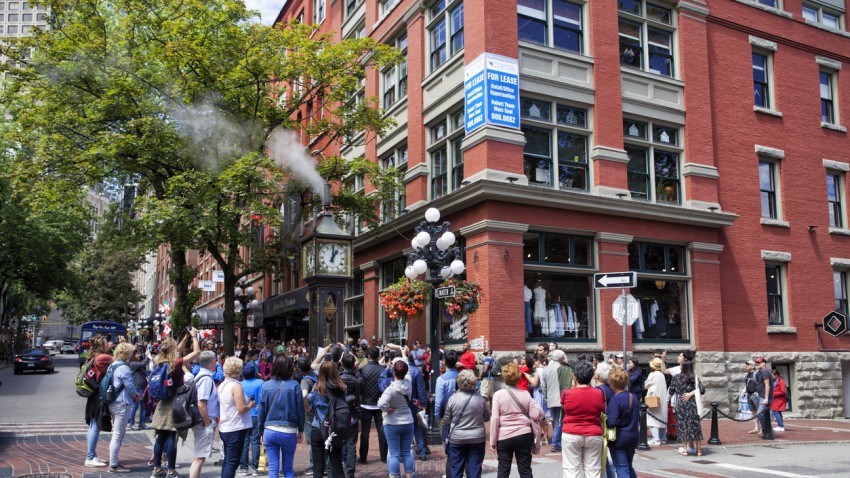Tourism is one of the crucial components of British Columbia’s economic resilience. More than 300,000 residents of the province are employed in this industry, which generated revenues of more than $18 billion in 2017.
Three years later, the COVID-19 pandemic has greatly altered the status quo. Airlines have grounded flights, cruise ships are not allowed to dock and the border with the United States is closed for all but the most essential traffic. Our protracted debates over the introduction of ride-hailing are moot when there are few individuals to take from Point A to Point B in a vehicle. Stores and cafes that depend on foot traffic are closed, boarded up, or both. The future earnings of thousands of British Columbians are at stake.
In spite of all of these ominous signs, there is hope that once life begins to resemble normalcy, tourism will bounce back. But while other industries may look at the COVID-19 lockdown as a temporary nuisance that can be weathered for a few months, tourism has to deal with two exceptional characteristics.
First, trips cater to people who have money to spend, which may prove more complicated if the pandemic forces possible travellers into a frugal mode. Second, the province depends largely on visitors from the United States, and, as the preceding weeks have shown, there will be plenty of anxiety if people from states that have not been as observant of social distancing guidelines are given the chance to visit Canada again.
The tourism industry will undoubtedly be featured in conversations about government assistance. No area will be as affected as Metro Vancouver, which is home to the most noteworthy airport in Western Canada and the most important cruise ship terminal. With this in mind, Research Co. and Glacier Media asked Metro Vancouverites to play the role of “armchair prime minister” and decide which types of organizations should be given financial assistance to avoid failure or bankruptcy.
When it comes to the corporations that bring people to Metro Vancouver, there is some reticence from residents. Views on the airline industry are nuanced, with 45% of Metro Vancouverites supporting a government bailout and 47% opposing it. The numbers shift when residents are asked about cruise ship operators. Only 40% would consent to taxpayer-funded financial assistance for these companies, while a majority (51%) opposes it.
Metro Vancouverites are more welcoming of government help for businesses that have roots here. A sizable majority favours assisting companies in the food and beverage industry, regardless of their size. We found that 76% of residents would consent to bailing out restaurants, cafes and bars that employ more than 10 people. A similar proportion (78%) would aid establishments that employ fewer than 10 people.
Seven in 10 Metro Vancouverites (71%) believe individual boutiques and stores should receive some financial assistance from governments in order to ward off bankruptcy. The proportion is significantly smaller (51%) when residents are asked about a bailout of retail outlets that are part of a chain with five or more stores in the country.
On the issue of ground transportation, 35% of Metro Vancouverites believe ride-hailing companies should be eligible for government assistance, while 52% do not. A higher proportion (47%) is in favour of bailing out taxi companies, while 42% disagree with this appraisal.
There is a noticeable age gap on the question related to vehicles for hire. Metro Vancouverites aged 18 to 34 are more likely to support a bailout of ride-hailing companies (42%) than those aged 35 to 54 (28%) and those aged 55 and over (32%). Conversely, taxi companies should be part of an economic recovery package for 54% of Metro Vancouverites aged 55 and over, compared to 49% among those aged 18 to 34 and 40% among those aged 35 to 54.
One relatively new feature of the tourism industry is at the bottom of the list. Only 27% of Metro Vancouverites believe a government-funded economic recovery package should consider help for Airbnb hosts, or individual property owners who offer short-term rentals. More than three in five residents (63%) are against this idea, including 69% of those aged 55 and over.
Metro Vancouverites have spent the COVID-19 lockdown preparing for a road to economic recovery that will be challenging. There will not be money for everything and everyone. At this stage, most residents believe the government should focus on helping services that all residents can enjoy, such as restaurants, cafes, bars, retail outlets and boutiques.
On the ground, taxis take precedence over ride-hailing companies. A wish for government assistance is higher for airlines than for cruise ship operators. Finally, in a development that is understandable in a province where housing has been a major source of frustration for the past few years, there is little sympathy from residents towards Airbnb hosts.
Mario Canseco is president of Research Co.
Results are based on an online study conducted from April 24 to April 26, 2020, among 800 adults in Metro Vancouver. The data has been statistically weighted according to Canadian census figures for age, gender and region in Metro Vancouver. The margin of error, which measures sample variability, is plus or minus 3.5 percentage points, 19 times out of 20.



